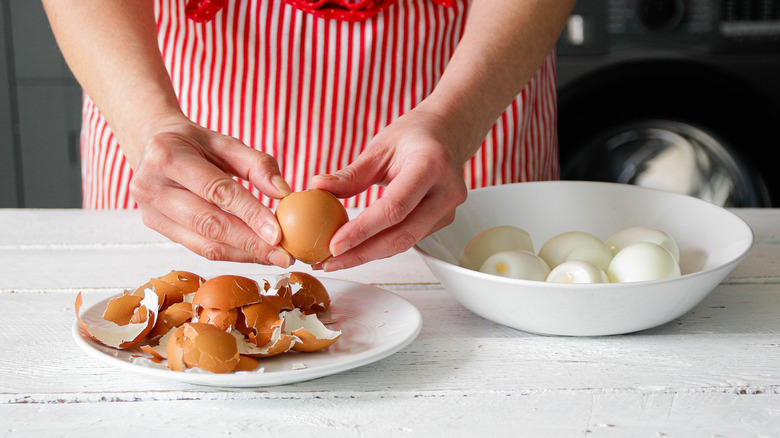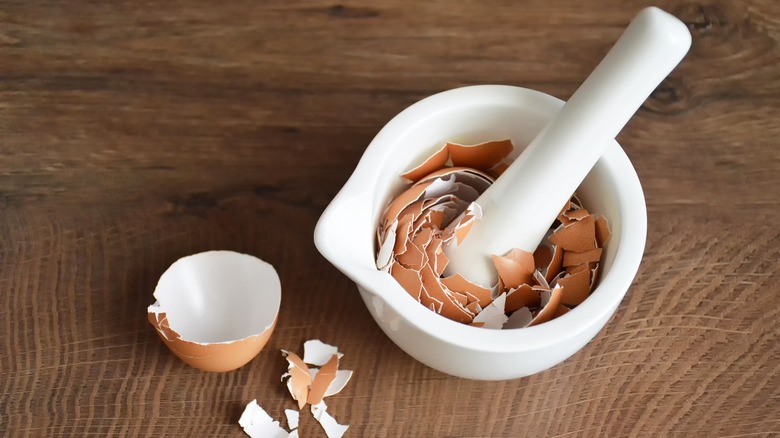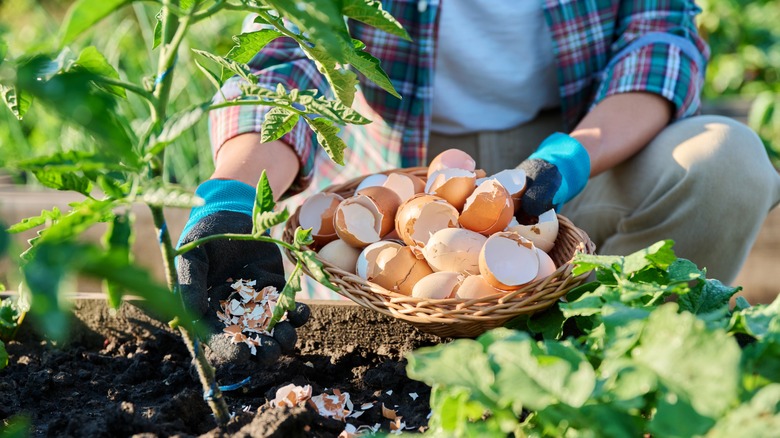What Happens If You Eat Eggshells?
We've all done it. We've bitten into a hard boiled egg or a plate of scrambled eggs and crunched on a piece of eggshell that we somehow missed. It's an alarming sensation at first, since your immediate thought probably involves an emergency trip to the dentist until you realize you simply ate a bit of shell. But is that actually a big deal?
Fortunately, it's not, and in fact, it might actually be good for you. That's because eggshells contain an essential mineral that helps our bodies stay healthy: calcium. They consist of about 95% calcium carbonate, with the remainder being iron, zinc, potassium, and sodium. Findings released in a journal article from 2018 published in Maternal & Child Nutrition say that chicken eggshells have a high calcium content of 380 milligrams of calcium per gram with a nearly 40% bioavailability (meaning what can be absorbed by our bodies). That detail is important, because an eggshell's calcium content is what's beneficial. Calcium is a basic component of our bodies like teeth, nails, and yes — our bones. The calcium can hopefully keep them strong, because dense bones make for sturdy ones that are less prone to being fractured.
How to consume eggshells as a dietary supplement
If you're a waste not, want not sort of person, you can indeed use crushed eggshells as a DIY dietary supplement at home. You'll want to sterilize them first by placing them in boiling water for at least 30 minutes, which will make them safer to consume, as this process eliminates pathogens associated with eggs that can potentially get you sick.
Next comes the crushing part. You can either use a mortar and pestle to manually grind the eggshells into a fine powder or you could opt to go the less manual labor-intensive route and use a high-powered blender to pulverize them (we're fans of Vitamix blenders, by the way). Then you can add the powder to various recipes such as smoothies, baked goods such as bread, soup, or even spaghetti, but make sure to check in with a medical professional first to see if this is something they recommend you try as a natural dietary supplement.
There are other useful things you can do with eggshells
Eating eggshells admittedly doesn't sound so gourmet, so if you're not in the mood to sneak them into your diet, you can reap the benefits of the spent egg casings in other ways, namely in your garden. That's because those nutrients mentioned earlier aren't just good for people, they're good for plants too. You can crush them and till them into the soil of your garden for fertilizer (their breakdown and root absorption process does take months, so maybe start in the fall prior), or you can also use eggshell halves as a bed for seed starters. And if you plan on doing this, don't throw away those egg cartons just yet — they can hold up the round eggshells so they don't tip over.
Healthy plants make for a healthy harvest; hopefully those tomato plants will bear some pretty abundant fruit come the end of summer. So don't toss those eggshells just yet. That accidental bite you took of one should remind you that they're not just nature's packaging, they're also still useful long after you've eaten what's inside. Oh, and here's a nifty little eggshell and coffee brewing trick you can try one day, along with nine egg recipes you can use to crack into one of nature's perfect foods that just seems to keep on giving.


